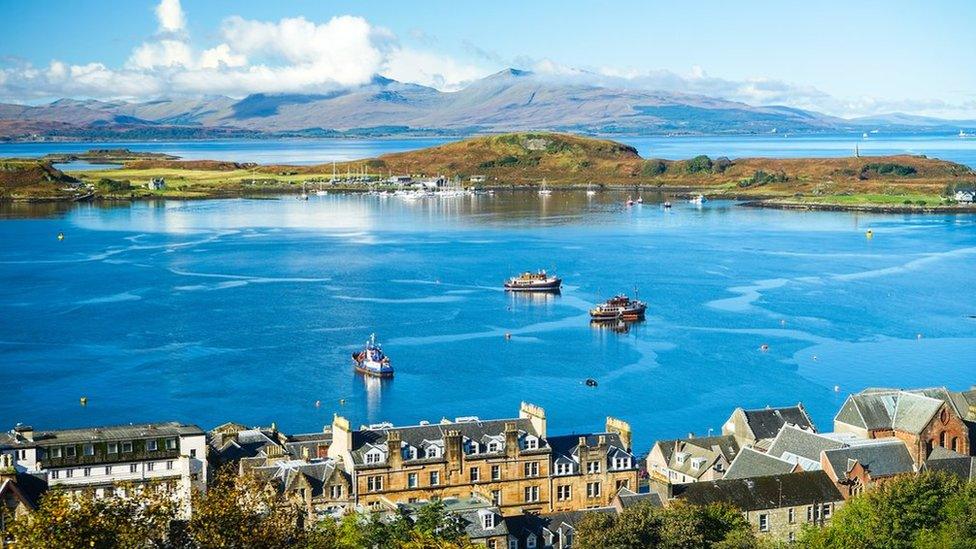Covid-19's £2.6bn hit to Highlands and Islands' economy
- Published

Analysis has suggested Argyll and Lochaber were among areas to see the highest rates of unemployment
The economy of the Highlands and Islands could decrease by as much as £2.6bn this year due to the impact of Covid-19 on businesses and jobs.
Analysis by Highlands and Islands Enterprise (HIE) has also suggested unemployment increased faster in the region than the rest of Scotland.
The agency said the area relied heavily on sectors identified as the "most exposed" to the effects of the virus.
These include accommodation and food services and arts and recreation.
Manufacturing, construction and retail and wholesale have also be hit.
HIE said the share of employment in these sectors was higher in the Highlands and Islands (39%) than Scotland as a whole (37%).
Output across most of these sectors had declined by 30%.
HIE said its analysis suggested rates of unemployment in its region were below the Scottish level, but had increased at a faster rate - 118% compared to the Scottish figure of 95%.
Between June and July, the overall unemployment rate in the Highlands and Islands increased from 5.4% to 5.7%.
HIE said unemployment rates were highest in Lochaber, Skye and Wester Ross and Argyll and the Islands.
It said taking all factors into account, gross domestic product in the region was estimated to contract "significantly" in 2020 and was likely to decrease by £1.5bn to £2.6bn.
'Long road to recovery'
The enterprise agency's area includes the Highlands, Moray, Western Isles, Northern Isles, Argyll and the Inner Hebrides.
Martin Johnson, HIE's interim director of strategy and regional economy, said the analysis showed the region's road to recovery would be a "long one".
He said: "This underlines the need to collaborate and innovate, and to draw on the many strengths this region has.
"Natural assets such as the marine economy, for example, are expected to generate many new economic opportunities in relation to the green recovery and the drive towards the net-zero targets.
"It's crucial that businesses, communities, academic institutions and the public sector work together to make the most of these opportunities and rebuild our region's economy."